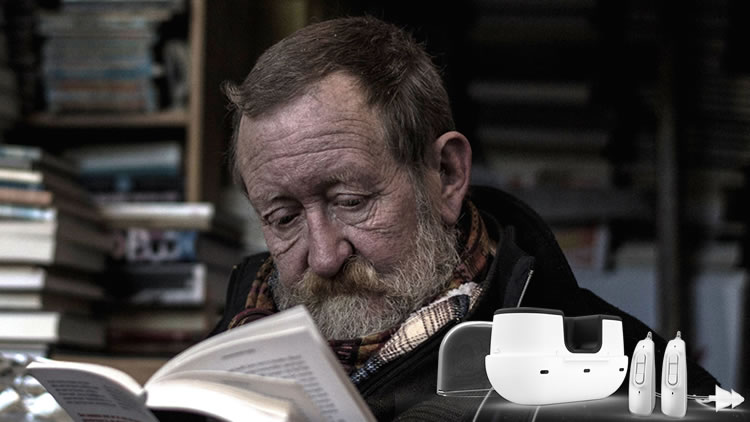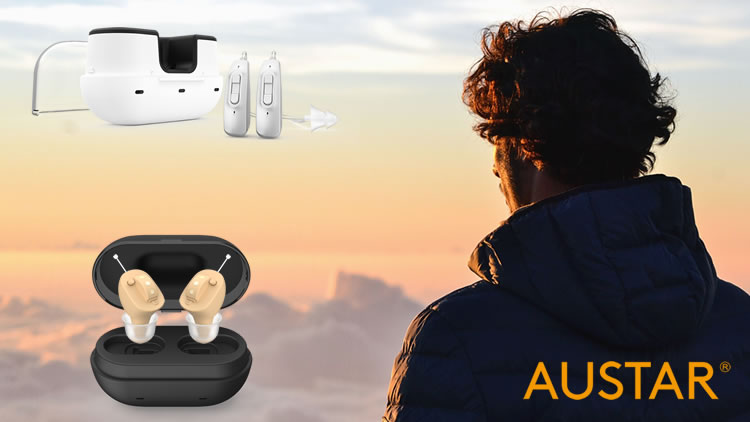- Home
- Hearing Loss
- Audiology
Can i recover after hearing loss?
2021-10-29Can hearing loss be recovered? Can loss of hearing be permanent? In fact, most of the hearing loss is irreversible and unrecoverable, and only a small part of the loss is reversible and recoverable. The recovery of hearing loss is mainly related to the location or nature of the lesion.
There are three types of hearing loss:
- First, conductive hearing loss
- Second, sensorineural hearing loss
- Third, mixed hearing loss.

Conductive hearing loss
hearing loss caused by external ear and / or middle ear problems can be called conductive hearing loss, such as external auditory canal inflammation, external auditory canal furuncle, external auditory canal eczema, cerumen embolism, etc; There is also atresia of the external auditory canal, such as microtia. Middle ear diseases include otitis media and tympanic membrane perforation. These problems may cause conductive hearing loss. Conductive hearing loss is mainly treated. For example, some conductive hearing loss can be improved or restored through surgery, drugs and other medical treatment, such as removing cerumen embolized in external auditory canal, repairing perforated eardrum, suction or tube drainage of middle ear effusion, resection of cholesteatoma and artificial auditory ossicle implantation. Through reasonable and timely treatment, most of them will recover their hearing.
Sensorineural hearing loss
sensorineural hearing loss is located in the hair cells, auditory nerves or hearing centers at all levels of the spiral apparatus. There is an obstacle to the perception of sound and the transmission of nerve impulse. The hearing loss caused by it is sensorineural hearing loss. Among them, those caused by hair cell lesions are called sensorineural deafness (or cochlear deafness), and there is often revitalization. Those whose lesions are located in the auditory nerve and its conduction pathway are called neurogenic deafness (or posterior cochlear deafness), which is characterized by a significant decline in language discrimination. Those whose lesions occur in the auditory center of the cerebral cortex are called central deafness, which is often accompanied by symptoms of the nervous system. Because the preliminary audiological examination can not distinguish inductive deafness, neural deafness and central deafness, it is collectively referred to as sensorineural deafness. Sensorineural hearing loss is not as lucky as conductive hearing loss. It can not improve or restore hearing through surgery, drugs and other medical treatment, so sensorineural hearing loss is irreversible. Common sensorineural deafness include senile deafness, Meniere's disease, ototoxic deafness, labyrinthitis, noise injury, acoustic neuroma and so on.
Mixed hearing loss
hearing loss has both conductive and inductive factors, which is called mixed hearing loss. Therefore, this type of transmission part has the possibility of recovery, but the possibility of partial recovery of sensory nerve is very small.

In addition, there is a special type of hearing loss, that is, sudden deafness, sudden and unexplained hearing loss in a short time (within 72 hours). The etiology is usually complex and difficult to determine. At present, the recognized inducing factors include virus infection, cardiovascular disease, noise, mental stress, mood fluctuation and so on. For sudden deafness, the most important thing is to "rush for time". You should go to the hospital at the first time, because if the treatment is timely, it is more likely to recover your hearing through comprehensive treatment such as hyperbaric oxygen, infusion of some drugs that nourish nerves or dilate blood vessels. 7 days is the best time for sudden deafness to rescue hearing. If it exceeds the best treatment time but not more than three months, it is recommended to go to the hospital for treatment first. If hearing cannot be effectively recovered through treatment, it is also necessary to wear hearing aids for early intervention.
Whether different hearing loss can be recovered and the degree of recovery are different, we need to distinguish. In addition, once there is hearing loss, we all need to actively treat it. If it cannot be recovered, we also need to actively take measures that can assist hearing, such as wearing hearing aids or cochlear implants.
About AUSTAR Hearing Aids
AUSTAR is a professional hearing aid manufacturer and supplier in China, as well as an OEM hearing aid manufacturer. Specializing in the production of affordable digital OTC and programmable hearing aids, and use our own fitting system software for programming hearing aids to ensure superior quality of hearing aid and make price competitive in this industry.

Hearing aid advantages:
Rich product structure
AUSTAR hearing devices cover traditional hearing centers and hospital fitting hearing aids, as well as online retail OTC hearing aids, with traditional batteries and convenient rechargeable styles to choose from. Common types of hearing aids are: BTE, RIC, CIC, ITC, ITE and BTE open-fit.
Convenient operation
AUSTAR hearing aid products focus on humanized design, sound control, program switching, ergonomic design, to avoid misoperation, and the operation method is suitable for all ages.
Famous brand
The AUSTAR hearing aid brand was founded in 2003, with 18+ years of professional experience in the production and sales of hearing aids, in Europe, North America, Asia, Africa and Latin America, the brand is well-known at home and abroad.
Contact us now to start your hearing aid business.
Latest
Audiology













All 0 comments